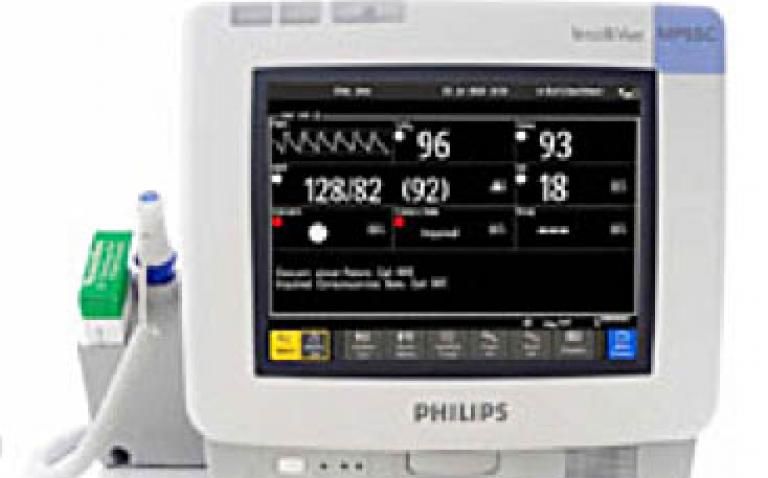Royal Philips Electronics has announced that its IntelliVue MP5SC vital signs monitor was used in a global multi-center study focused on identifying deteriorating patients in general hospital wards and improving their outcomes. The results of the study are being published in the August issue of the Journal of Critical Care Medicine. They include a finding that the deployment of an electronic automated vital signs monitor to assist in the acquisition of vital signs and calculation of early warning scores, increased the survival rate of patients who required a Rapid Response Team (RRT) call.
The Philips IntelliVue MP5SC vital signs monitors used in the study were equipped with the integrated and automated IntelliVue Guardian EWS clinical decision support tool. With the goal of improved patient outcomes, clinical decision support tools such as the EWS analyze, interpret and present data in a meaningful way, helping clinicians to speed patient assessment and plan treatments.
“Early identification of deteriorating patients through vital signs monitoring and analysis carries no conceivable risk but has a significant upside,” said lead author Rinaldo Bellomo, M.D., Ph. D., director of Intensive Care Research at the Austin Hospital in Melbourne, Australia. “Clinical advisories point out potential problems before they have a chance to develop, helping to shorten hospital stays. Early intervention can be the difference in improving patient outcomes and goes a long way toward saving hospitals money.”
The researchers studied the effects of adding the monitors to the hospitals’ existing general ward protocols on Rapid Response Team calls, measuring the survival of Rapid Response Team call patients, serious adverse events and length of stay. Study results included:
- Survival rate increased by 6.3 percent among patients who received RRT calls;
- Average length of stay decreased by three percent in the United States hospitals included in the study; and
- The time required to measure and record a set of vital signs decreased from 4.1 minutes to 2.5 minutes, resulting in 1.7 nursing hours per day, allowing nurses to focus energies on other aspects of patient care.
The study was conducted in 12 general care wards at hospitals in five countries with a total of more than 18,000 participating patients.
“These advances rely on the key concept that patient care is not an individual effort anymore – it is most effective when caregivers work together as a team, using the best data available,” Dr. Bellomo said.









